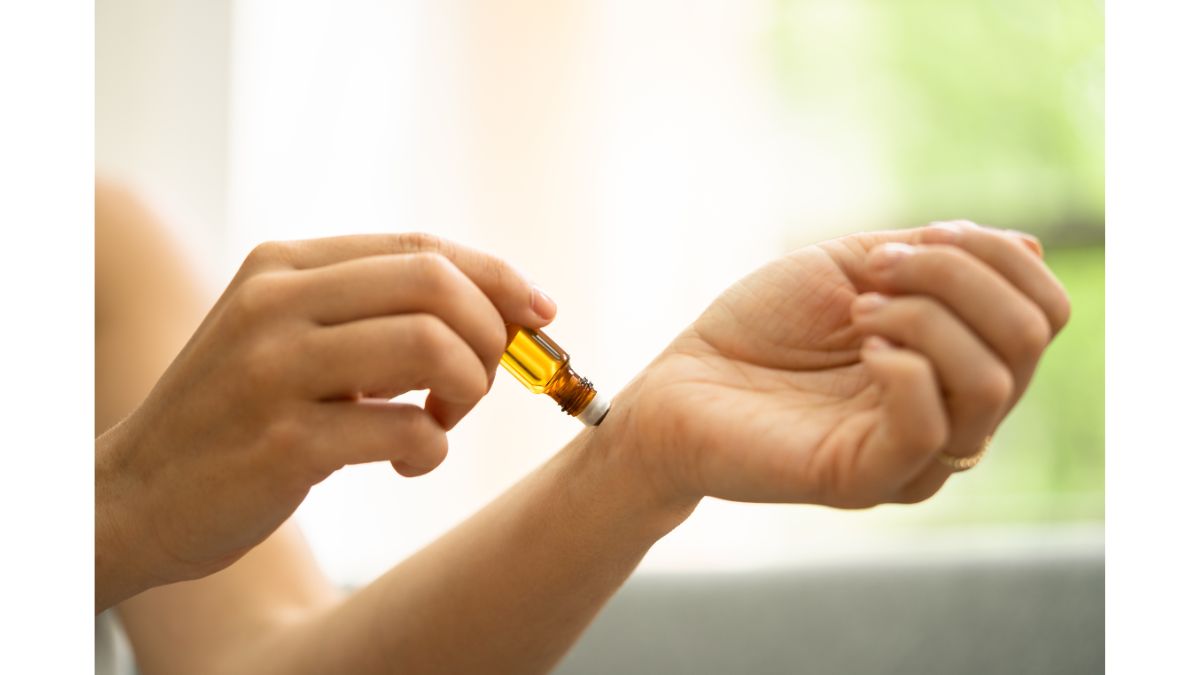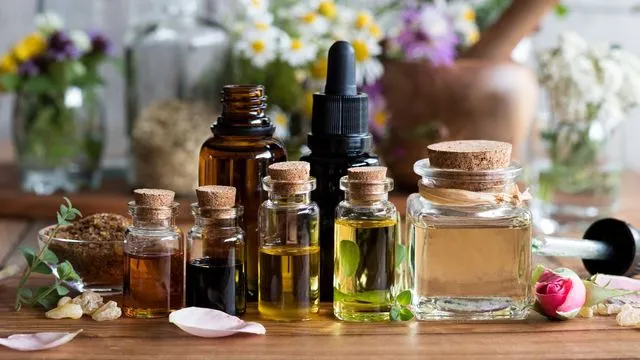- By Prerna Targhotra
- Tue, 14 May 2024 03:51 PM (IST)
- Source:JND
Now essential oils have become popular, especially after the pandemic. In Aromatherapy, essential oils are used to relieve stress, reduce anxiety, depression, insomnia, control acne, skin irritation or dryness etc. However, these oils must be used very carefully. Overuse or improper application of these oils can be harmful to you, your health or your skin.
Everyone talks about the benefits of oil. But Dr Blossom Kochhar – Pioneer in Aromatherapy and Founder of Blossom Kochhar Aroma Magic explained about certain disadvantages of over usage of essential oils on your skin.
Disadvantages Of Overusing Essential Oils On Face
Skin Irritation/ Allergic Reactions
Essential oils are highly concentrated and contain potent compounds that can cause skin irritation, especially when used undiluted or in high concentrations. Common symptoms of irritation include redness, itching, burning, and inflammation. Although essential oils are derived from natural sources, they contain complex mixtures of compounds that can trigger allergic reactions.
ALSO READ: Benefits Of Yoga: 5 Surprising Ways Regular Yoga Strengthens Your Emotional Health
Phototoxicity
When exposed to the sun after the application of certain essential oils, it may result in severe burns, blistering and hyperpigmentation. This condition is called phototoxicity. Some essential oils, especially citrus oils like bergamot, lemon, lime, and grapefruit, contain phototoxic compounds known as furanocoumarins.
Chemical Burns
Essential oils like cinnamon and clove have the potential to cause chemical burns when applied directly to the skin. These oils can be irritating, leading to redness, blistering, and even tissue damage if left on the skin for prolonged periods or used without proper dilution.
Disruption Of Skin Barrier
Essential oils, particularly those with strong antimicrobial properties, may disrupt the natural lipid barrier of the skin, which is extremely important in maintaining hydration and protection against external irritants and pathogens. Use of these oils in high concentrations regularly can compromise the skin barrier, leading to dryness, sensitivity, and increased susceptibility to environmental damage.

Cons Of Overusage Of Essential Oils (Image Credits: Canva)
Interaction With Medications
Certain essential oils contain bioactive compounds that can interact with medications or exacerbate underlying medical conditions. For example, oils rich in eugenol, such as clove and cinnamon oils, can interfere with blood clotting and may pose risks for individuals taking anticoagulant medications. It's important for individuals with pre-existing health conditions or those taking prescribed medications to consult their doctor before using essential oils topically.
- Although these oils can cause damage to the skin, there are a few points we need to keep in mind while using essential oils. Here are a few guidelines for you to adhere to before topical application of these oils.
- Always dilute essential oils in carrier oil or vegetable oils, such as coconut, jojoba, or almond oil, before applying them to the skin.
- Always do a patch test on a small area of skin before using a new essential oil to check for sensitivity or allergic reactions.
- Avoid applying undiluted essential oils directly to the skin, especially sensitive areas like the face or mucous membranes.
- Limit exposure to phototoxic essential oils and protect the skin from sunlight or UV radiation after application.
Dr Kochhar said, ”As much as I would recommend you include Aromatherapy or essential oils in your day-to-day lives, I would suggest when applying topically you use these essential oils with caution and in moderation.”

